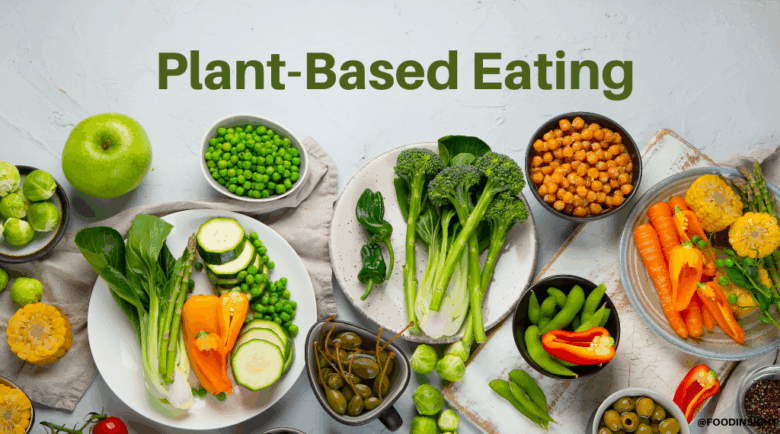It’s no surprise that plant-based diets are becoming increasingly popular. More and more people are choosing a plant-based diet because it benefits them in so many ways, including a healthy heart and a healthier stomach. Please elaborate on the specific benefits of consuming plants. And how does it improve our health? Read this article to determine if a plant-based lifestyle is right for you.
This article analyzes the top benefits of a plant-based diet, explores the science behind it, and answers some frequently asked questions. Read this article, and you’ll clearly understand why everyone is talking about plant-based diets and how they can help you.
The Rise of Plant-Based Diets:
In the past, eating plants exclusively was just a small part of society, but now it’s a global trend. Restaurants are offering entire menus of plant-based dishes, supermarkets are offering plant-based options alongside traditional dishes, and even fast food chains have joined the fight. But this isn’t just a trend; this rise is real. That’s because more and more people are beginning to understand the social, health, and environmental benefits of a plant-based diet.
Studies indicate that people who eat more plant foods tend to be healthier than those who eat more animal foods. A growing body of research suggests that a cleaner, plant-based diet can reduce the risk of several chronic diseases. This evidence is leading to a global shift in eating habits. It’s easy to see why plant-based diets are gaining popularity around the world: they’re good for the environment and for animals.
Why a Plant-Based Diet Is Good for Your Heart:
Plant-based diets have been proven time and again to be beneficial for your heart. Studies show that eating more fruits, vegetables, whole grains, nuts, and legumes can lower cholesterol, blood pressure, and the risk of heart disease. Animal-based diets are high in fat, while plant-based diets are rich in healthy unsaturated fats and dietary fiber, both of which are essential for a healthy heart.
For example, a 2017 study published in the Journal of the American Heart Association found that people who ate mostly plant foods had a 16 percent lower risk of heart disease than people who ate mostly meat. People can improve their heart health and reduce the need for medications for conditions like high cholesterol and high blood pressure by focusing on nutrient-rich plant foods.
Plant Foods Can Help You Lose Weight:
A plant-based diet can also help with weight loss. Plant foods are generally lower in calories and higher in fiber than animal foods, which helps keep you feeling full and prevents you from overeating. Fiber slows down the digestion of food, making you feel fuller longer, and prevents your blood sugar levels from rising too quickly, which can stimulate your appetite.
In addition, more and more processed plant foods, such as meat substitutes and plant-based snacks, are being produced to help people reach their weight loss goals without sacrificing taste or convenience. Studies have indicated that people who follow a plant-based diet tend to have a lower Body Mass Index (BMI) than people who follow an animal-based diet. A plant-based diet can help you reach your weight loss or management goals by adding variety and nutritional value to your daily diet.
Plant-Based Diet and Diabetes Prevention:
Plant-based diets are particularly beneficial for preventing and managing type 2 diabetes. A plant-based diet is thought to help regulate blood sugar levels and improve insulin function by increasing fiber-rich foods and reducing artificial sugars and saturated fats. Foods like beans, leafy greens, and whole grains help keep blood sugar levels stable, reducing the risk of diabetes.
A 2019 study published in the journal Diabetes Care found that people who ate a predominantly plant-based diet were 23 percent less likely to develop type 2 diabetes than those who ate a mainly animal-based diet. Because plant foods are nutrient-dense and have a low glycemic index, they are perfect for people with diabetes who want to eat a delicious, balanced diet.
The Role of Plant-Based Eating in Cancer Prevention:
Several studies indicate that plant-based diets can lower the risk of some types of cancer. Phytochemicals, vitamins, and fibers found in plant-based foods work together to fight oxidative stress, lower inflammation, and reduce exposure to carcinogens. Some foods, like cruciferous veggies like broccoli and kale, fruits like berries, and spices like turmeric, are known to help fight cancer.
The American Institute for Cancer Research (AICR) says that a diet mostly made up of whole plant-based foods can help keep you from getting cancer. Even though there is no way to fully eliminate the risk of cancer, living a plant-based lifestyle is a proactive way to lower the chances of getting this life-changing disease.
Better Digestion by Choosing Plant-Based Foods:
Plant-based foods are beneficial for your gut. Plant-based meals are beneficial for digestion because they are full of fiber, prebiotics, and foods that are high in water. They also help keep your gut bacteria healthy. A healthy microbiome is important for absorbing nutrients, lowering inflammation, and even making your immune system stronger.
Fiber is an important nutrient that you can find in large amounts in whole grains, fruits, veggies, and legumes. It supports normal digestion, keeps you from getting constipated, and grows beneficial bacteria in your gut. A plant-based diet is a great choice if you want to have a healthier gut and fewer stomach problems.
Why You Should Switch to Eating Only Plants:
Plant-based living is more than just a trend; it’s a choice that is beneficial for your health and morals and is environmentally friendly. A plant-based diet can help you in every way, whether you want to improve your heart health, lose weight, or just feel better overall. It’s time to put healthy, plant-based foods to work for your health.
If you don’t know where to begin, try adding more fruits, veggies, and whole grains to the foods you already eat. Over time, making small, straightforward changes can have big effects on your health. Today is the day to start eating more plant-based foods and see how they improve your health, your mind, and even the world.
FAQs:
1. What kinds of foods are in a plant-based diet?
Whole foods that come from plants are emphasized in a plant-based diet. These include fruits, nuts, seeds, legumes, whole grains, and veggies. Even though it cuts down on or gets rid of animal products, some people still eat fish, cheese, or eggs occasionally.
2. Is there enough protein in plant-based diets?
Of course! Lentils, beans, tofu, tempeh, rice, and nuts are all plant-based foods that are high in protein. With the right mix of foods, you can get all the protein you need every day without eating anything animal-based.
3. Do plant-based meals cost a lot of money?
However, this is not always the case. Foods that come from plants, like rice, beans, and veggies, are often cheaper than processed foods and meat. You can save even more money by buying in bulk and eating what’s in season.
4. Can kids do well on a plant-based diet?
Yes, kids can do well on a plant-based diet that is well-planned. You should make sure that their meals have enough protein, iron, calcium, and vitamins that they need. Getting help from a nutritionist can help with certain issues.
5. Is it difficult to switch to a plant-based diet?
It may only take replacing one or two meals a week with plant-based choices to make the switch. Slowly start eating more plant-based foods to get used to the change and find out what works best for you.




